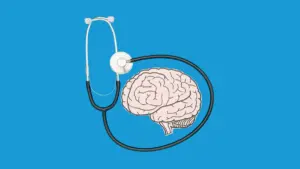Each October, Breast Cancer Awareness Month unites people across the globe to highlight the impact of breast cancer, promote education, and support those affected by the disease. Symbolized by the pink ribbon, this annual observance emphasizes the importance of early detection, prevention, and ongoing research.

History and Purpose
Founded in 1985, Breast Cancer Awareness Month began as a partnership between the American Cancer Society and a pharmaceutical company to promote mammography as an essential tool in fighting breast cancer. Today, it has grown into a global campaign, supported by organizations like the National Breast Cancer Foundation and Susan G. Komen, raising awareness and funding for treatment, patient support, and research.
Why Awareness Matters
Breast cancer is the most commonly diagnosed cancer among women worldwide. Awareness campaigns encourage early detection through screenings and provide education about risk factors. Beyond education, they foster community, compassion, and empowerment for survivors and their families.
Understanding Breast Cancer and Risk Factors
Common Risk Factors
While breast cancer can affect anyone, certain risk factors increase the likelihood of diagnosis. These include age, family history, genetic mutations such as BRCA1 or BRCA2, and personal health history. Environmental influences and lifestyle choices also play a significant role.
The Role of Lifestyle Choices
Lifestyle habits such as diet, physical activity, and alcohol consumption directly influence cancer risk. Healthy choices, combined with regular screenings, can reduce risk and improve outcomes. Recognizing these factors helps individuals make informed decisions about their health.
Alcohol and Its Link to Breast Cancer
What the Research Shows
Alcohol is a well-established risk factor for breast cancer. Studies have consistently shown that drinking even small amounts of alcohol increases the risk of developing the disease. Research from the National Institutes of Health highlights that alcohol consumption is linked to hormone changes that can stimulate cancer cell growth. According to BreastCancer.org, women who consume three alcoholic drinks per week have a 15% higher risk of breast cancer compared to those who abstain.
How Alcohol Affects the Body and Cancer Risk
Alcohol affects estrogen and other hormone levels associated with breast cancer. It can also damage DNA in cells, which may trigger the development of cancer. The risk increases with the amount consumed, but even moderate drinking poses a measurable risk.
Recommended Guidelines and Prevention
Health experts recommend limiting alcohol consumption—or avoiding it altogether—to lower breast cancer risk. For individuals who find it difficult to reduce drinking, professional support and recovery programs can provide the tools and guidance needed to make lasting changes.
Resources and Awareness Campaigns
National and Global Initiatives
Breast Cancer Awareness Month is supported by leading organizations that provide education and resources:
- The National Breast Cancer Foundation offers free mammograms, patient navigation services, and educational materials.
- Susan G. Komen funds groundbreaking research and advocacy efforts.
- Breast Cancer Now empowers communities across the UK to engage in awareness and fundraising.
How to Get Involved Locally
Individuals can support awareness by wearing pink, sharing educational materials, participating in fundraising walks, or volunteering with local organizations. These efforts not only raise awareness but also provide tangible support for individuals and families impacted by breast cancer.
How Oceanrock Health and South Coast Counseling Can Help
Alcohol Misuse and Cancer Risks
Since alcohol use is a known risk factor for breast cancer, addressing drinking habits is an important step in prevention and recovery. At Oceanrock Health, programs are designed to help individuals reduce or eliminate alcohol use while focusing on long-term wellness.
Addiction Treatment and Mental Health Support
At South Coast Counseling, treatment programs support individuals who struggle with both substance use and mental health challenges. By offering therapy, group support, and holistic care, clients receive the resources they need to address underlying issues and build healthier lives.
Taking the First Step
Seeking help for alcohol misuse is a step toward better health and cancer prevention. Both Oceanrock Health and South Coast Counseling provide compassionate, evidence-based care for individuals and families ready to make lasting changes.
Awareness, Prevention, and Support
Breast Cancer Awareness Month is a reminder that prevention and awareness save lives. By understanding the link between alcohol and breast cancer, individuals can make informed choices that reduce their risk. For those who need help with sobriety, professional support is available. Together, awareness campaigns and treatment programs create a path toward healthier, brighter futures.








